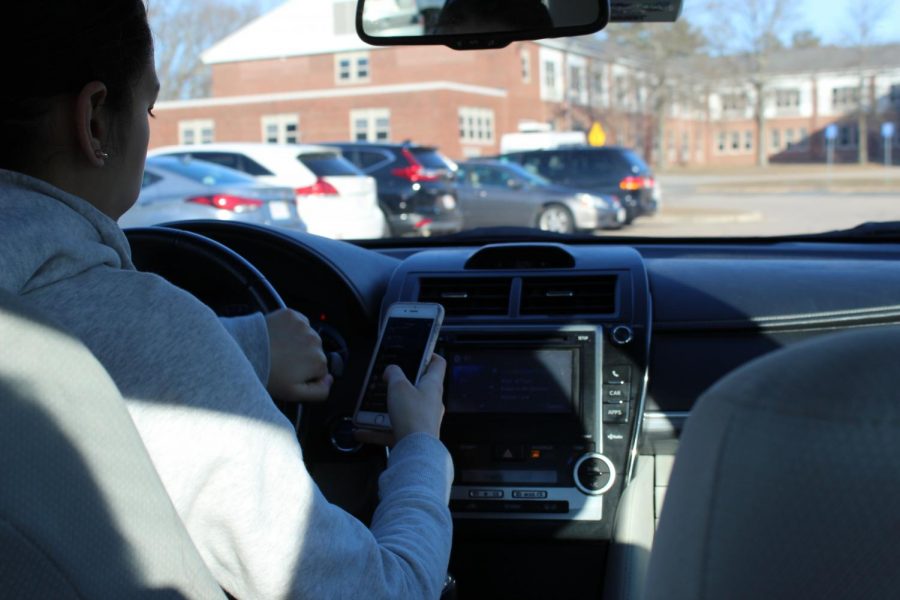New Hands-Free Law Goes into Effect
To Decrease Distracted Driving, Drivers Will no Longer be Able to Hold Their Phones
The new legislation hopes to decrease instances of distracted driving.
Massachusetts’ new “hands-free” law went into effect on Feb. 23. The law bans drivers from using any handheld devices, such as cellphones, while driving. Upon signing this bill, Governor Charlie Baker has made Massachusetts the last of the New England states to put this ban in place. Baker hopes that this ban will help drivers keep their eyes on the road—and off their phones.
“Operators driving a car should not be holding a phone to text, check social media or email. When a driver on an electronic device hits something or someone, that’s not an accident. It’s a crash that was avoidable. So this is a very proud day for Massachusetts where we join the other states in New England and do more to prevent further injuries and horrible tragedies,” Baker said at the signing ceremony.
Until the end of March, there will be a grace period, in which drivers who are stopped for using handheld devices will only receive a warning. But after that, a first offense warrants a $100 fine, second offense $250 plus mandatory completion of a distracted driving class and a third or any subsequent offenses will cost $500, an insurance surcharge and the completion of another distracted driving class. Within the first week that the law took effect, Massachusetts State Police troopers issued 578 warnings to drivers for using handheld devices.
Even with this new legislation, drivers will still be able to use their cell phones if their car is not in a travel lane and is stationary, but drivers cannot use their phones at stop signs or red lights. Cell phones can be used for navigation purposes if the device is mounted to a dashboard, windshield or center console. However, for drivers under the age of 18, all phone use while driving is illegal, including use in hands-free mode. As always, the use of cell phones in emergency situations will still be permitted.
This law differs from the previous texting ban because now, drivers cannot touch their phones while driving, except to activate or deactivate hands-free mode. Only voice command or a single swipe or tap can be done to complete actions on a handheld device. Under this legislation, the use of headphones and earbuds is still prohibited while driving.
In 2010, the Massachusetts Safe Driving Law banned texting and driving, but since then the number of distracted drivers has continued to rise. Now, with the hands-free law and local police cracking down on distracted driving, this legislation could be beneficial in decreasing the number of crashes due to texting and driving.

Catherine McLellan, class of 2021, is the Lifestyle Editor and the Assistant Managing Editor for The Searchlight. At WHS, she is a captain of the cross...

Renee Abbott, class of 2021, is the Editor-in-Chief of The Searchlight. Abbott is president of Creative Writing Club, and is a choreographer for WHS Dance...













